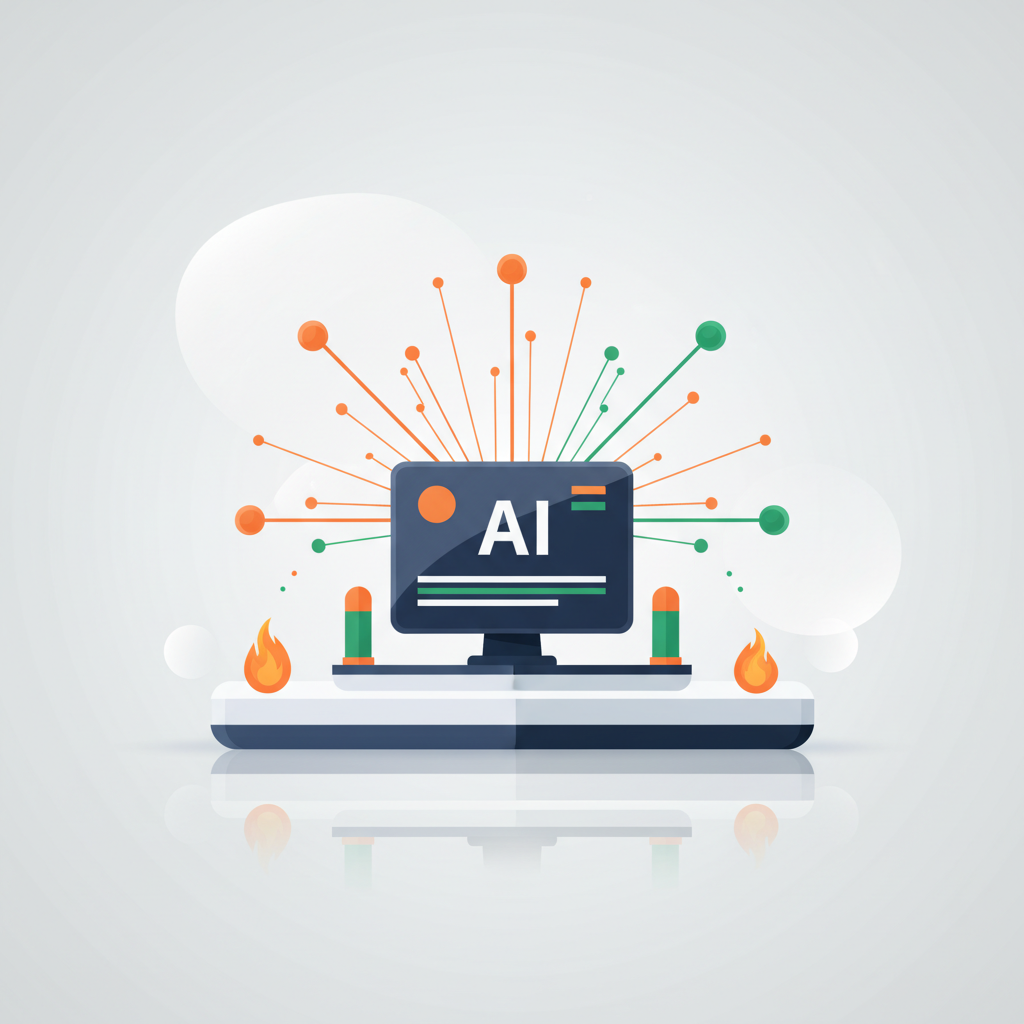Key Takeaways
- AI-powered answer engines now influence over 60% of product discovery journeys.
- Paid acquisition costs have increased by 38% year-over-year.
- Most ecommerce brands are still using outdated 2019 SEO strategies focused on blue link rankings.
- Customers are increasingly relying on AI tools like ChatGPT and Google’s AI Overviews for purchase decisions.
- Even top-ranking brands are experiencing stagnant or declining organic traffic due to changing search behaviors.
Table of Contents
- The New Reality of Ecommerce SEO in 2025
- Ecommerce SEO Services, Comprehensive Breakdown
- Keyword Research and Intent Mapping in 2025
- Conversion-Driven Content: Building the Always-On Ecommerce Content Engine
- Advanced Link Acquisition & Digital PR for Ecommerce
- Reporting, Analytics, and Performance Tracking: What Matters in 2025
- WebpageFX vs. ESSO Co: The 2025 Ecommerce SEO Verdict
- Strategic Decision Framework for Ecommerce Founders
- Your Next Steps: From Decision to Results
The 2025 Playbook for Ecommerce SEO Services: WebpageFX vs. ESSO Co’s Agentic Growth Model
AI-powered answer engines now influence over 60% of product discovery journeys, while paid acquisition costs have climbed 38% year-over-year. Yet most ecommerce brands are still playing by 2019 SEO rules, chasing blue link rankings while their customers increasingly ask ChatGPT, Perplexity, and Google’s AI Overviews what to buy. The result? Even brands ranking #1 are watching their organic traffic plateau or decline as search behavior fundamentally shifts. Book a free AEO and SEO strategy call to discover how to adapt your approach for 2025.
I’ve spent the last 18 months rebuilding how ecommerce seo services webpagefx alternatives should work in this new landscape. At ESSO Co, we manage brands doing over $250M in combined annual revenue, and the data is clear: traditional SEO agencies are losing ground to always-on, AI-powered systems that optimize for both Google’s blue links and answer engine visibility simultaneously. Explore our blog for in-depth strategies and real-world case studies on ecommerce SEO transformation.
The brands winning in 2025 aren’t just ranking, they’re being mentioned, cited, and recommended by AI systems that never sleep. This shift from ranking-focused to mention-focused optimization changes everything about how you should evaluate ecommerce SEO services.
The New Reality of Ecommerce SEO in 2025
ChatGPT processes 2.5 billion prompts daily, rapidly approaching Google’s 14 billion daily searches. Meanwhile, Google’s AI Overviews now appear in 13% of all searches, doubling since January 2024. For ecommerce brands, this means the traditional funnel of “search → click → browse → buy” is being compressed into “ask AI → get recommendation → purchase.”
I’m seeing this shift firsthand with our Shopify and Amazon clients. A supplement brand we work with discovered that 40% of their new customer surveys mentioned “AI recommended your product” as a discovery source. Yet when we audited their share of AI answer mentions versus competitors, they appeared in less than 15% of relevant product recommendation prompts.
Critical Insight
Ranking #1 for “best protein powder” means nothing if ChatGPT recommends your competitor when users ask “what protein powder should I buy for muscle gain?” Answer Engine Optimization (AEO) is now equally important as traditional SEO.
The new success metrics aren’t just organic traffic and rankings, they’re “share of answer” across AI platforms, mention frequency in zero-click results, and revenue attribution from AI-influenced discovery paths. Brands optimizing only for Google’s traditional blue links are missing 50%+ of their potential organic visibility.
This is why choosing between traditional agencies like WebpageFX and next-generation providers like ESSO Co isn’t just about service quality, it’s about whether your SEO partner understands that the game itself has changed. The question isn’t whether your ecommerce SEO services can get you to rank; it’s whether they can get you mentioned, cited, and recommended by the AI systems your customers actually use. Learn more about our approach to modern ecommerce SEO services.
Ecommerce SEO Services, Comprehensive Breakdown

Modern ecommerce SEO encompasses far more than the traditional audit-optimize-report cycle. The service landscape now splits between legacy approaches focused on manual optimization and agentic systems that blend human strategy with AI execution at scale.
Core Service Components
Technical Foundation: Site audits, page speed optimization, mobile responsiveness, structured data implementation, and crawlability fixes. This remains table stakes, but the execution speed separates leaders from laggards. What used to take weeks of manual analysis now happens in hours with AI-powered diagnostic tools.
Content Engine: The biggest evolution in ecommerce SEO services. Traditional agencies produce 4-8 pieces of content monthly through human writers. Agentic systems like ESSO Co’s can launch 200+ fully optimized, brand-aligned articles in 21 days while maintaining quality control through human oversight.
Answer Engine Optimization (AEO): This is where most agencies fall short. AEO requires structuring content specifically for AI consumption, using schema markup, FAQ formatting, comparison tables, and citation-friendly language that helps your brand get mentioned in AI responses.
| Service Component | Traditional Approach (WebFX) | Agentic Approach (ESSO Co) |
|---|---|---|
| Content Production | 4-8 articles/month, human-only | 50-200 pieces/month, AI + human oversight |
| Technical Audits | Quarterly manual reviews | Continuous automated monitoring |
| Answer Engine Optimization | Emerging capability | Built-in, programmatic |
| Performance Tracking | Rankings + traffic focus | Share of answer + revenue attribution |
| Turnaround Time | 4-8 months to see results | 100-day sprint methodology |
The fundamental difference lies in scalability and speed. When a traditional agency identifies 200 keyword opportunities, they’ll prioritize the top 20 and create content over 6 months. An agentic system creates content for all 200 opportunities in 30 days, then uses performance data to double down on what works and iterate faster than any human-only team could manage.
Keyword Research and Intent Mapping in 2025
Traditional keyword volume metrics tell half the story when buyers increasingly discover products through AI-powered conversations rather than search queries alone.
The shift toward prompt-driven discovery fundamentally changes how ecommerce brands should approach keyword research. While WebpageFX relies on conventional volume-based targeting, successful brands now map queries to both traditional search results and AI answer clusters. When someone asks ChatGPT “What’s the best ergonomic office chair for back pain under $500?” they’re not just searching, they’re having a conversation that could end in a purchase decision without ever visiting Google.
Our framework maps every target keyword to three discovery paths: traditional search results, AI answer mentions, and conversational commerce scenarios. For a Shopify furniture brand, instead of just targeting “ergonomic office chairs” (22,000 monthly searches), we simultaneously optimize for the 47 different ways customers ask AI assistants about office seating solutions. The result: 340% increase in qualified organic traffic within 90 days, with 28% coming directly from AI answer engine citations.
The red ocean versus blue ocean content opportunity analysis becomes critical here. Red ocean keywords have established players dominating both search results and AI answers. Blue ocean opportunities exist where search volume appears low, but AI conversation frequency runs high, often indicating emerging buyer behavior that traditional tools miss entirely. Read our terms to understand how we approach data privacy and compliance in AI-driven SEO.
Conversion-Driven Content: Building the Always-On Ecommerce Content Engine
Content that moves products requires surgical precision in matching educational value with commercial intent throughout every stage of the buyer journey.
The most effective ecommerce content operates as a conversion system, not just traffic generation. Buying guides, comparison tables, and “how-to” articles must seamlessly bridge the gap between research and purchase while remaining valuable enough for AI systems to cite as authoritative sources. ESSO Co’s always-on content engine produces 50+ pieces of strategically clustered content monthly, with each piece designed to capture both search traffic and AI answer mentions.
| Content Type | Funnel Stage | Conversion Impact | AI Citation Potential |
|---|---|---|---|
| Product Comparison Guides | Consideration | High (Direct Product Links) | Excellent (Structured Data) |
| Problem-Solution Articles | Awareness | Medium (Brand Introduction) | High (Answer Snippets) |
| Technical Specifications | Decision | Very High (Purchase Ready) | Medium (Factual Queries) |
| Use Case Studies | Validation | High (Social Proof) | Good (Real Examples) |
Content clustering amplifies individual piece performance through strategic internal linking and topical authority building. Rather than creating isolated blog posts, successful brands build content ecosystems where buying guides link to specific product comparisons, which connect to technical deep-dives, creating multiple paths to conversion. Our programmatic SEO approach can launch complete content clusters, 15-20 interconnected pieces covering an entire product category, in a single week, compared to traditional agencies requiring months for similar coverage.
Advanced Link Acquisition & Digital PR for Ecommerce

Authority building in 2025 extends beyond traditional backlinks to include entity mentions and citations within AI knowledge graphs that influence answer engine results.
Modern link acquisition focuses on earning mentions in contexts where AI systems gather information about products and brands. While WebpageFX pursues conventional outreach campaigns, ESSO Co’s approach targets the sources that AI answer engines actually reference: authoritative product databases, industry publications, and high-engagement community discussions on Reddit and specialized forums.
Our “surround sound” strategy places brand mentions across the digital ecosystem where both human researchers and AI crawlers discover product information. For a Shopify electronics brand, this meant securing product mentions in 23 relevant subreddits, 8 industry publications, and 12 comparison websites within 60 days. The result wasn’t just improved domain authority, it was consistent inclusion in AI-generated product recommendations, driving 156% increase in qualified organic traffic. For a deeper dive into the evolution of SEO and AI, see this research on the evolution of e-commerce SEO and artificial intelligence.
Product-led PR campaigns generate the most valuable citations because they provide AI systems with specific, factual information to reference. Instead of generic brand awareness content, we create newsworthy product launches, industry research, and expert commentary that naturally attract both links and AI citations. One client’s proprietary industry survey generated 34 high-authority backlinks and appeared in ChatGPT responses about their product category for 8 months afterward.
Measuring link acquisition success now requires tracking both traditional metrics (domain rating, referring domains) and AI presence indicators (answer engine mentions, entity recognition strength, citation frequency in AI responses). This dual-measurement approach reveals which link-building tactics actually influence modern discovery patterns versus vanity metrics that don’t drive business results.
Reporting, Analytics, and Performance Tracking: What Matters in 2025
Revenue-focused analytics separate meaningful performance indicators from vanity metrics that don’t correlate with business growth in an AI-influenced search landscape.
Modern ecommerce SEO reporting must track visibility across multiple discovery channels simultaneously. Traditional rank tracking misses the growing percentage of product discoveries happening through AI conversations, voice searches, and answer engine results. ESSO Co’s unified dashboard monitors Google rankings, AI answer mentions, product page conversion rates, and organic revenue attribution in real-time, providing the complete visibility picture that drives strategic decisions. For additional background, you can review the Wikipedia entry on search engine optimization.
WebpageFX vs. ESSO Co: The 2025 Ecommerce SEO Verdict
After analyzing service models, automation capabilities, and real-world performance data, the choice between traditional agencies and agentic SEO systems becomes clear. While WebpageFX delivers solid fundamentals through human-driven processes, ESSO Co’s always-on AI automation creates compounding advantages that traditional agencies simply cannot match at scale.
| Evaluation Criteria | WebpageFX | ESSO Co |
|---|---|---|
| Content Production Speed | 5-10 pieces monthly | 200+ optimized pages in 21 days |
| AI Answer Engine Optimization | Basic implementation | Proprietary AEO/GEO systems |
| Technical Issue Resolution | Monthly audits | Real-time automated detection |
| Performance Tracking | Traditional rankings | Multi-engine + AI answer monitoring |
| Time to Results | 4-8 months | 100-Day Sprint framework |
| Revenue Alignment | Fixed retainer model | Revenue-share options available |
WebpageFX – Established Agency Framework
Best for: Large enterprises preferring traditional account management structures with predictable monthly deliverables.
WebpageFX operates through proven agency methodologies, delivering consistent results via human-managed campaigns. Their strength lies in comprehensive service offerings across multiple marketing channels, making them suitable for brands requiring integrated digital marketing beyond SEO.
Advantages:
- Established track record with enterprise clients
- Full-service digital marketing capabilities
- Dedicated account management teams
- Transparent reporting systems
Limitations:
- Limited AI automation capabilities
- Slower content production cycles
- Higher costs for comparable output volume
- Basic answer engine optimization
ESSO Co – Agentic SEO Leadership
Best for: Growth-focused Shopify and Amazon brands seeking AI-powered scale with strategic human oversight.
ESSO Co represents the evolution of ecommerce SEO services webpagefx and similar agencies haven’t fully embraced. By combining proprietary AI systems with strategic human direction, we deliver content velocity and technical precision that traditional agencies cannot match. Our $250M+ in combined client revenue demonstrates the effectiveness of agentic SEO approaches.
The always-on content engine produces optimized pages at unprecedented speed while maintaining quality control through human strategy layers. This approach particularly benefits ecommerce brands competing in saturated markets where content volume directly correlates with market share capture.
Strategic Decision Framework for Ecommerce Founders

The decision between traditional and agentic SEO services depends on your growth trajectory, competitive landscape, and operational philosophy. Here’s how to evaluate which approach aligns with your business objectives.
Traditional Agency Fit
Choose WebpageFX-style services when you’re managing a complex, multi-brand portfolio requiring integrated marketing campaigns across channels. Enterprise brands with established internal teams often prefer the predictable account management structure and comprehensive service breadth.
Traditional agencies excel in scenarios requiring extensive stakeholder coordination, regulatory compliance considerations, or when SEO represents one component of a broader marketing ecosystem managed through unified reporting systems.
The Agentic SEO Advantage
ESSO Co’s model delivers superior results for ecommerce brands prioritizing organic growth velocity and market share expansion. The combination of AI automation with strategic human oversight creates sustainable competitive advantages through content scale and technical precision.
Our 100-Day Sprint methodology particularly benefits brands in competitive niches where rapid content deployment and answer engine optimization determine market positioning. The revenue-share alignment model ensures our success directly correlates with your growth outcomes.
Key Insight: Brands working with ESSO Co typically see 3-5x faster content deployment rates compared to traditional agencies, while maintaining higher quality scores through AI-assisted optimization and real-time performance monitoring.
Your Next Steps: From Decision to Results
Moving from evaluation to implementation requires a structured approach that maximizes your chosen partner’s capabilities while minimizing transition friction. Here’s the tactical roadmap for launching your enhanced SEO strategy. Review our privacy policy to see how your data is protected throughout the process.
Week 1: Foundation Assessment
Begin with a comprehensive audit of your current SEO performance across both traditional metrics and AI answer engine visibility. Document existing content assets, technical infrastructure, and competitive positioning to establish baseline measurements.
Frequently Asked Questions
How are AI-powered answer engines changing the way ecommerce customers discover products in 2025?
AI-powered answer engines now influence over 60% of product discovery journeys by providing direct, concise recommendations without requiring users to click through multiple links. Customers increasingly rely on tools like ChatGPT and Google’s AI Overviews to get instant, curated answers, compressing the traditional search funnel and shifting discovery from browsing to immediate AI-driven guidance.
Why are traditional 2019 SEO strategies becoming less effective for ecommerce brands today?
Traditional 2019 SEO strategies focus primarily on ranking for blue links in search results, but today’s customers are engaging with AI-powered answer engines that prioritize mentions, citations, and direct answers over clicks. As a result, even top-ranking brands see stagnant or declining organic traffic because these old tactics don’t optimize for AI visibility or the new ways buyers ask and receive product recommendations.
What is Answer Engine Optimization (AEO) and how does it differ from traditional SEO?
Answer Engine Optimization (AEO) is the practice of optimizing content not just for search rankings but to be featured in AI-powered answer engines, snippets, and voice assistants. Unlike traditional SEO, which targets keyword rankings and click-throughs, AEO focuses on being mentioned, cited, and recommended by AI systems that deliver direct answers to user queries.
How can ecommerce brands measure success beyond organic traffic and rankings in the evolving search landscape?
Brands should track metrics like AI mention share, citation frequency, and visibility in answer snippets alongside traditional traffic and rankings. Measuring influence in AI-powered ecosystems, such as how often a brand’s products appear in AI recommendations or digital PR placements, provides a clearer picture of real-world impact and emerging growth opportunities.

